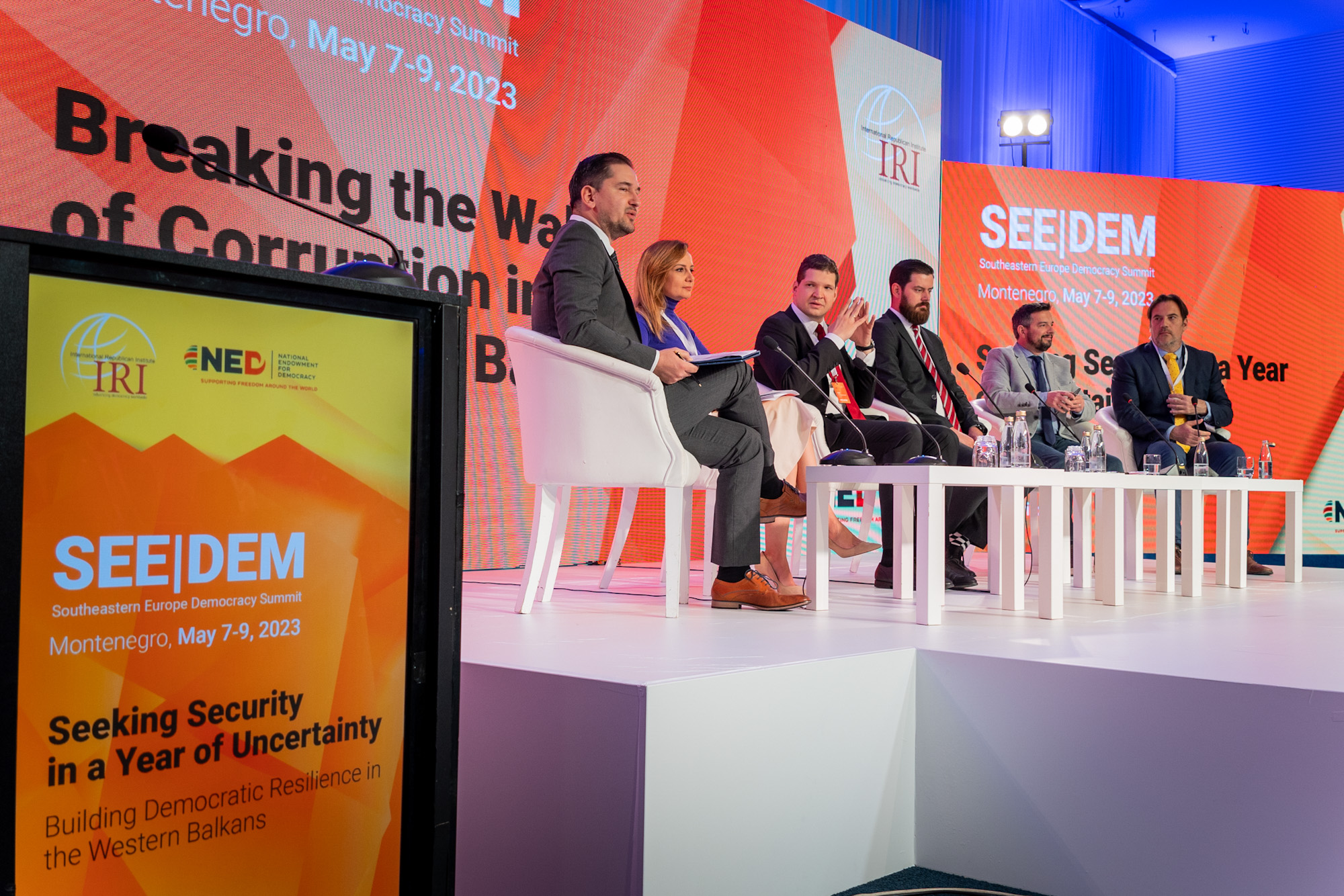
Russian and Chinese influence in the Western Balkans continued to undermine regional stability in 2023. Chinese investments – particularly in Serbia – and Russian dark money throughout the region, threatened to stall progress towards strong democratic institutions. In recent months, there has been a noticeable ratcheting-up of ethnic tensions, as evidenced by the unconstitutional celebration of a ‘national’ holiday in the Bosnian Entity of Republika Srpska on January 9th. This secessionist celebration, attended by Serbian, Russian, and Chinese officials, prompted U.S. fighter jets to perform a fly-over across Bosnia and Herzegovina (BiH) to show support for the country’s territorial integrity. Likewise, inter-ethnic tensions in Kosovo reached dangerous levels as multiple episodes of violence erupted in the northern municipalities.
More generally, corruption and malign foreign influence continued to impede progress towards democratization and EU accession in the Western Balkans. Using its regional networks and extensive institutional resources, IRI deployed its Western Balkans Task Force on Threats to Democracy to combat these pernicious forces.
The Western Balkans Task Force – an association of reformist thought leaders, policymakers, and journalists working to dismantle barriers to stable, democratic governance – convenes periodically throughout the year to address the obstacles that threaten to subvert reconciliation and democratization in the Western Balkans. Chief among these anti-democratic challenges are the destabilizing political, economic, and social effects of rampant corruption, and the influence of malign foreign actors – namely Russia and China. These two problems amplify each other, as malign foreign actors are able to use and expand existing corruption networks in the region to curry favor with government and business elites.
Foreign authoritarians also leverage legitimate channels to gain financial and cultural influence through foreign direct investment. Predatory investment practices in the relatively poor and underdeveloped Western Balkans create situations where governments are beholden to their foreign authoritarian benefactors instead of their own citizens. Additionally, Russia and China make use of the information sphere to stoke interethnic tensions, sow mistrust in democratic institutions, and foment anti-Western sentiment. These problems contribute to societal breakdown in the Western Balkans, which causes many young, educated, and ambitious citizens – the very people who are essential for creating democratizing societal change – to emigrate. The Task Force is working to expand its network of activists and garner interest from key stakeholders to counter the deleterious effects of corruption and malign foreign influence.
In May 2023, IRI held the fourth Southeastern Europe Democracy Summit (SEE|DEM) in Budva, Montenegro. In addition to showcasing the Task Force’s work on fighting corruption and countering foreign authoritarian influence, the three-day event brought together stakeholders from around the region to discuss barriers to democratization and ways to combat them. Participants from the EU and U.S. were also in attendance. Notable speakers and panelists included U.S. Ambassador to Montenegro Judy Reinke, President of Montenegro Jakov Milatovic, Prime Minister of Montenegro Dr. Dritan Abazovic, as well as ministers and members of parliament from Albania, Montenegro, BiH, and Kosovo. The presence of high-level government officials at the conference indicates a level of willingness among local elites to consider and implement policy recommendations such as those provided by the Task Force in a series of six recently published policy papers.
The policy papers address the challenges of corruption, kleptocracy, and malign foreign influence in each of the six Westen Balkans countries. Using the findings from the policy papers, IRI and the Task Force are engaging government officials and other important stakeholders across the region and beyond – including officials in Serbia and Albania, the Vice Chairman of Montenegro’s National Anticorruption council, and U.S. lawmakers. Additionally, IRI commissioned the production of a series of visually pleasing YouTube videos that provide a brief synopsis of each publication.
Looking ahead, IRI is excited to announce that the 2024 SEE|DEM Conference will be held in Brussels, Belgium. By holding SEE|DEM in the political heart of the EU, IRI will draw European leaders’ attention to the Task Force’s work to address the obstacles facing the Western Balkans countries on their paths to EU accession and lasting stability. IRI is also in the process of commissioning new public opinion research that will shed light on the region’s most pressing issues and allow us to track how public sentiment has evolved since our 2022 regional poll.
Top